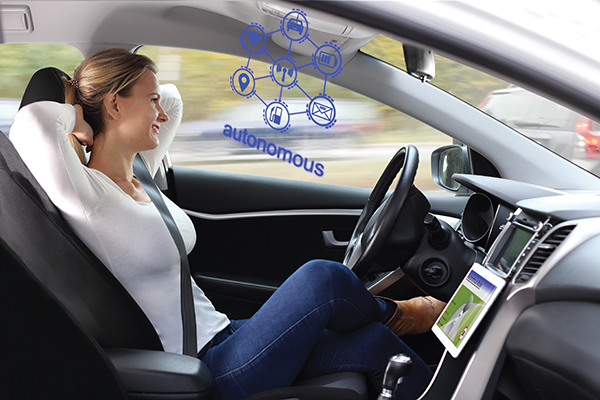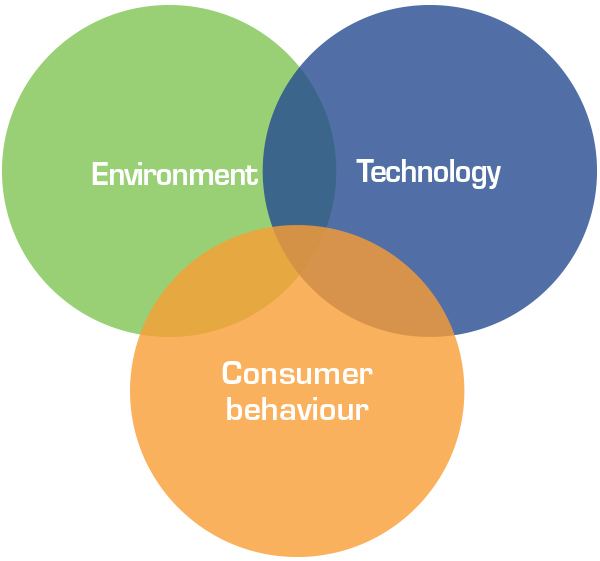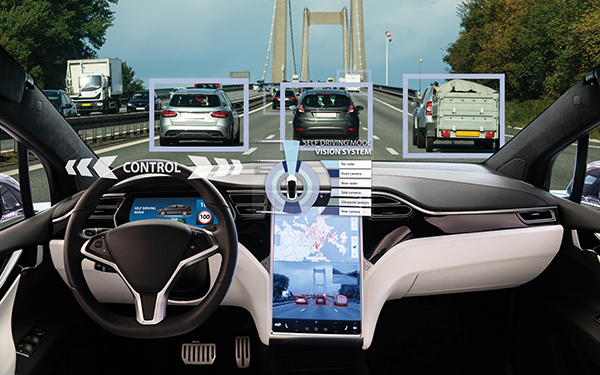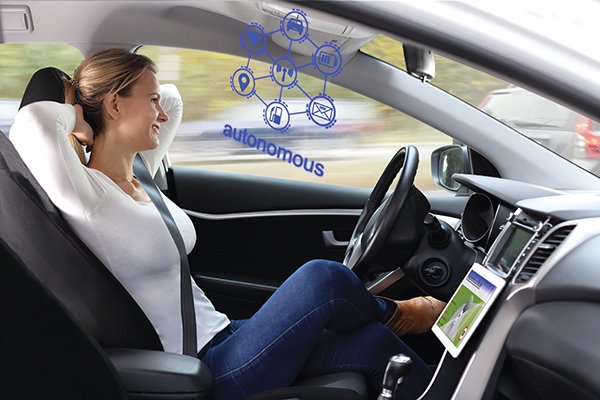In the automotive industry - whether it's car manufacturers, car dealers, or wholesalers in the aftermarket - consolidating has meant that over the last decade many have become relatively few. Most will agree that this development has taken place very quickly, creating new opportunities on the one hand, but also many challenges for the players in the automotive industry on the other hand. However, experts and futurists concede that the next few decades will bring far more profound changes in the industry. The topic is quite extensive, which is why we will publish a series of articles to examine the current factors and share our assessment of the consequences for the industry.

We are living in a time of turbulent changes in terms of factors that influence the future development of the automotive industry.

Environment
For decades, the environmental pollution of vehicles with internal combustion engines has been a hot topic. On the political side, the requirements for reducing CO2 pollution and emissions of NOx particles in Europe have been subject to the EURO standard, by now we have reached EURO 6. The even stricter EURO 7 has not yet been implemented but this is expected to happen in 2021.
The environmental focus on reducing CO2 pollution has also led to a greater focus on alternatives to internal combustion engines. Politically, diesel engines for passenger cars have been used as whipping boys. And this even though new technologies can reduce the emission of NOx particles to about one fifth of the previous amount. This makes diesel engines a more environmentally friendly alternative compared to gasoline engines. The endeavor of the political system to achieve results for the environment, only rarely takes a cradle to cradle approach and all factors that harm the environment into account. The overall environmental effects of the production of e.g. electric cars and their power consumption, for example, are often forgotten.
Also, the use of environmentally friendly and recyclable materials in the manufacture of cars is now part of the environmental focus. As a result, the labeling and recycling of parts and materials from end-of-life cars has improved many times over.
Technology
Technological development has been driven, in part, by the demand to reduce the environmental impact of motor vehicles and, in part, by the possibility of exploiting new technological advances in vehicles. The demand to reduce the environmental impact has, among other things, led to the development of electric, hybrid and hydrogen cars. Development in areas such as AI (Artificial Intelligence), IoT (the Internet of Things - the ability to connect devices, machines, vehicles to the Internet) and 5G (mobile broadband) are being implemented into vehicles. For example, the further development of connected cars is intended to make the car a very attractive exposition expanse for products and services for the user. These new opportunities are of course used by actors in the automotive industry, but also companies from other industries see opportunities here to implement their products and services. The new technologies will also mean that we will eventually encounter autonomous-driving cars on the road.

Consumer behavior
The last important factor that has a significant impact on the upcoming changes is consumer behavior. Most pronounced in the younger segment, consumers are looking for convenience - that is, advantageous solutions. All studies show that the desire for property in favor of the sharing economy is decreasing. However, this type of consumer behavior will be affected to some extent by demographic conditions, and the above trends will be most pronounced in densely populated areas. Loyalty towards car brands will continue to decrease as well. In the future, the car's ability to be much more than just a car - that is, its ability to interact with the outside world and be a service provider - will be crucial to a buyer's decision. The entire buying process will also change significantly. Car purchases will depend on the financing options and not vice versa. More than 80% of buyers will inform themselves online during the purchasing process, and 47% will already have decided on a model and features before they walk into the dealership.

Future needs for transportation
The above predictions may cause many readers to assume that the demand for transportation will decline, but all studies suggest the opposite. Transportation needs will continue to increase, the way we meet our transportation needs will however change. For example, car utilization will increase as sharing economy and autonomous driving technologies increase. Today, the average rate of use of a private car is 5% over its lifetime - this will change radically. In densely populated areas, autonomous-driving taxis and carpools can solve many transportations needs at a fraction of today’s price.
Read on in the next issue of our newsletter, where we examine the implications for car manufacturers, car dealers, spare part wholesalers and garages.








